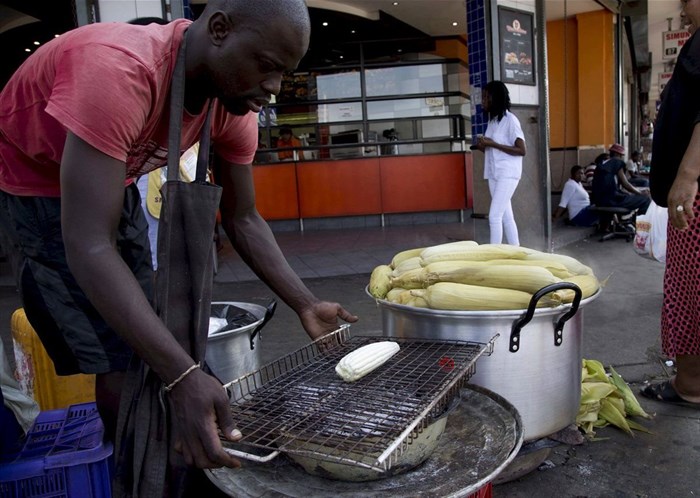
Subscribe & Follow
#AfricaMonth
In the news
Soaring maize prices squeeze South African consumers, stoke inflation

A global run in the price of maize driven by higher import demand from China, droughts in South America and dry conditions in parts of the United States and Canada have raised local maize prices despite expectations of a bumper 2020/2021 domestic maize crop.
The September domestic white maize contract closed at R3,107 ($224.85) per tonne on Thursday 28% higher than a year ago, while the yellow maize contract closed 26% higher compared with the prior year at R3,223, near an almost five-year high reached earlier this month.
Pinching pennies
White maize is the main source of calories for many households in the country, which has been battling decades of inequality, unemployment and an economy that was already in a recession before the Covid-19 pandemic struck.
Consumers have had to also dig deeper into their pockets to buy meat with yellow maize - the primary source of energy in livestock and poultry feed.
Favourable weather has encouraged cattle farmers to slaughter fewer animals further pushing prices up.
"In the first quarter of 2021 red meat slaughter numbers were down by 3.5% compared to a year ago," said Dr Marlene Louw, senior economist at Absa AgriBusiness.
The average food basket cost for a low-income household of seven members has risen 19% to R4,137 in May 2021 from a year earlier, data from civil society initiative the Pietermaritzburg Economic Justice and Dignity Group showed.
"I used to buy groceries for R1,000 but now, if I want to buy the food I currently like to buy, I have to spend around R1,600. My pocket is losing more money," said 30-year-old Nomfundiso Zwedala as she contemplates her purchases at a Johannesburg supermarket.
Retailers have also felt the pinch with the country's biggest food producer Tiger Brands and feed and poultry producer Quantum Foods warning of higher costs driven by commodity prices.
Inflation pressure
The stakes are high for Africa's largest economy which has long battled to tame high inflation and shield the population from poverty and hunger.
Higher inflation rises would force the reserve bank to increase rates, further stifling spending and hurting the economy.
"The higher maize prices will definitely contribute immensely to higher food inflation in the short term given its broad use for both human and livestock consumption," said Paul Makube, FNB Senior Agricultural economist.
South Africa's consumer food prices rose by 6.3% year-on-year, the highest level since July 2017.
"We expect it [maize prices] to continue to add pressure to inflation over the next quarter," said Louw.
About Tanisha Heiberg
Additional reporting by Akhona Matshoba; Editing by Robert Birsel.Related
Flash Gala surpasses one million cartons as South African apple exports gain ground 16 May 2025 Global shifts in focus as Nampo 2025 champions farm resilience 14 May 2025 From the ground up: How soil health unlocks greater yields for small-scale farmers 12 May 2025 China bans South African beef imports amid FMD outbreak 12 May 2025 South Africa's wine industry shines with 2025 vintage 8 May 2025 Western Cape renews MoUs to support new farmers 7 May 2025










